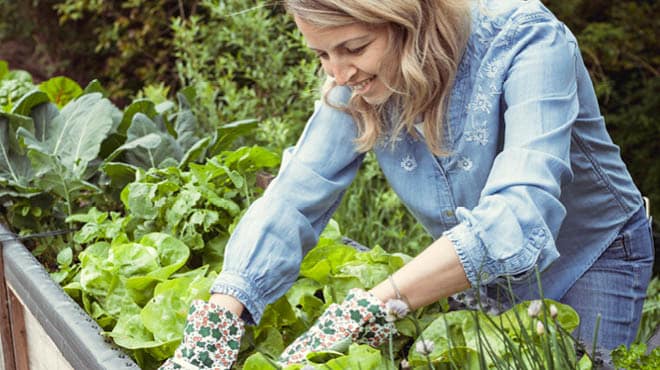The Most Effective Gardening Plants for Low-Maintenance and High Compensate
The Most Effective Gardening Plants for Low-Maintenance and High Compensate
Blog Article
Opening the Perks of Gardening: An In-depth Take A Look At the Different Types and Their Influence on Health
Exploring the multifaceted advantages of gardening discloses a spectrum of practices that dramatically enhance specific health. From vegetable and herb gardens to container and elevated bed configurations, each kind provides unique advantages that extend beyond mere farming. These tasks not just foster physical health and wellness via active engagement yet likewise contribute to mental health by minimizing stress and anxiety and encouraging mindfulness. As we analyze these diverse horticulture techniques, it becomes noticeable that their influence can resonate on individual, social, and environmental levels, prompting a closer look at how these links form a cohesive narrative of alternative health and wellness.
Kinds of Horticulture

Flower horticulture, an additional prominent category, highlights the aesthetic allure of grown flowers. This type can boost landscapes and promote biodiversity by attracting useful pollinators. Herb horticulture includes growing fragrant and culinary plants, adding both to food preparation and natural solutions.
Container gardening offers flexibility, making it possible for people with minimal space to involve in horticulture by utilizing pots and planters. This method is particularly popular in metropolitan setups. Elevated bed horticulture, on the other hand, involves producing elevated plots that boost soil water drainage and access, making it less complicated for gardeners to handle their plants.
Lastly, neighborhood gardening promotes cooperation among people in shared rooms, promoting social interaction and cumulative responsibility. Each kind of horticulture serves distinctive purposes and deals with different preferences, making horticulture a functional activity that can be tailored to specific needs and atmospheres.
Mental Wellness Advantages
Engaging in different kinds of horticulture not only generates substantial rewards such as fresh fruit and vegetables and stunning flowers yet also provides considerable psychological wellness benefits. Research suggests that horticulture can be an effective device for decreasing anxiety, anxiousness, and depression. The act of tending to plants and cultivating a garden promotes a feeling of function and success, which can boost total psychological well-being.
Additionally, horticulture urges mindfulness, as it calls for people to concentrate on the existing moment, whether it be planting seeds or nurturing growth. This mindfulness technique can lead to reduced rumination and improved mood stability. The direct exposure to natural surroundings throughout horticulture has likewise been linked to enhanced cognitive functioning and decreased sensations of exhaustion.
Social communication plays a vital duty in psychological health and wellness, and neighborhood gardening initiatives offer opportunities for people to connect with others, he has a good point fostering a feeling of belonging. The shared experience of gardening can cultivate relationships and support networks, even more boosting emotional resilience.
Physical Health Perks
Numerous people may not realize that horticulture also supplies significant physical health advantages. Taking part in gardening tasks requires an array of physical movements, consisting of flexing, lifting, digging, and growing, which jointly contribute to enhanced toughness, flexibility, and endurance. These activities can enhance cardiovascular health and wellness by advertising an elevated heart rate, consequently lowering the threat of cardiovascular disease.
In addition, gardening can act as a moderate-intensity exercise, assisting people attain recommended physical activity degrees. Studies suggest that routine engagement in horticulture can burn significant calories-- roughly 200-400 calories per hour, depending upon the intensity of the tasks executed. Such calorie expense is advantageous for weight administration and general metabolic wellness.
In addition, direct exposure to sunshine during horticulture can promote the synthesis of vitamin D, which plays an important function in keeping bone wellness and sustaining immune feature. The act of gardening frequently involves working with dirt, which has actually been linked to potential psychological and physical wellness advantages due to the existence of useful microorganisms.
Social Connections Via Horticulture
The common elements of gardening foster significant social links amongst people. Neighborhood gardens, specifically, offer as lively centers where individuals from diverse backgrounds come together, cultivating not only plants but also partnerships. These shared areas encourage cooperation, allowing individuals to trade expertise, skills, and sources, thus improving their horticulture experience and fostering a sense of belonging.
Engagement in horticulture tasks typically leads to the development of relationships and assistance networks. Individuals frequently join for typical goals, such as growing periods, harvest events, or instructional workshops, which enhance interpersonal ties and develop a feeling of community. Such communications can alleviate feelings of seclusion and improve mental health, as individuals find companionship and sociability in shared undertakings.

Environmental Influence of Gardening
Horticulture considerably Recommended Site adds to environmental sustainability in multiple means. Among one of the most notable advantages is the improvement of biodiversity. Home yards supply vital environments for different types, including pollinators such as bees and butterflies, which are necessary for community health and wellness. By growing varied plant varieties, gardeners can create a well balanced environment that sustains both plants and fauna.

Additionally, yards play a crucial role in water conservation. Tactical landscapes, including indigenous plants and xeriscaping, decrease water usage and protect against runoff, therefore protecting local waterways from contamination.
Final Thought

Finally, horticulture acts as a multifaceted activity that enhances well-being across different domains. The diverse sorts of horticulture-- consisting of veggie, flower, herb, container, and increased bed-- add to psychological and physical health, foster social links, and advertise ecological sustainability. By participating in gardening practices, individuals can experience enhanced top quality of life while additionally supporting area bonds and environmental health and wellness. Eventually, the all natural benefits of horticulture underscore its significance as an important aspect in enhancing total health.
Report this page